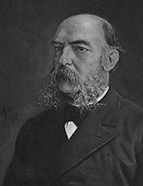

JAR successfully engaged in numerous administrative, political, teaching, and academic duties while simultaneously pursuing a research and writing project of great scope, undeniable quality, and significant impact. It seems he was aware of his extraordinary productivity and the breadth of his work. In Estudios históricos, políticos y literarios sobre los judíos de España [Historical, political and literary studies on the Jews of Spain], published in 1848 and translated into several languages, he expressed his gratitude to the government for awarding him a knighthood in the Hospitaller Order of Saint John of Jerusalem, in recognition of what he referred to as his "humble literary works". In the same Introdução [Introduction] he stated, however, with less modesty, that part of these Estudios [Studies] were being translated for publication in Constantinople, "to teach the Jews of those shores the history of their forefathers". This lack of modesty is entirely justified: the volume, which exceeds six hundred pages, has become a cornerstone of the study of Jewish culture in the Iberian Peninsula. Its importance is evidenced by references in the works of Oliveira Martins and Teófilo Braga, among others, and it has had a significant impact beyond the Iberian Peninsula. In fact, it represents the clear boundary that JAR established between religion and his works, distinguishing him from nearly all that had been traditionally written in Spain up to that time. At the same time, this aspect of his work aligned him with the liberal and nationalist movements emerging across Europe during that period. He engaged with these movements through travel and correspondence with prominent foreign intellectuals.
Like many of his contemporaries, JAR's body of work cannot be analysed by separating topics, areas of study — such as History, Literature, and Art History — or time periods. However, it is evident that much of his work focused on the medieval period, and many of his contributions have left a lasting mark on Iberian medievalism. For example, the lecture he delivered at the Real Academia de la Historia [Royal Academy of History] on 18 February 1848, titled "La influencia de los árabes en las artes y literatura españolas" [The influence of the Arabs on Spanish arts and literature], served as a catalyst for other scholars, such as Modesto Lafuente and Evaristo San Miguel, who also emphasised the significance of Arabic studies for a comprehensive understanding of Iberian medieval culture. Simultaneously, the publication of the aforementioned Estudios históricos, políticos y literarios sobre los judíos de España, expanded in 1876 into Historia social, política y religiosa de los judíos de España y Portugal, laid the groundwork for subsequent work by scholars such as Fidel Fita, Antonio Domínguez Ortiz, and Américo Castro, among many others.
